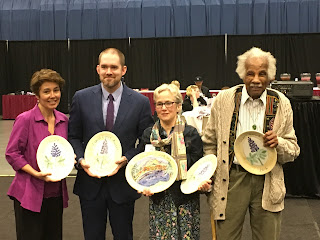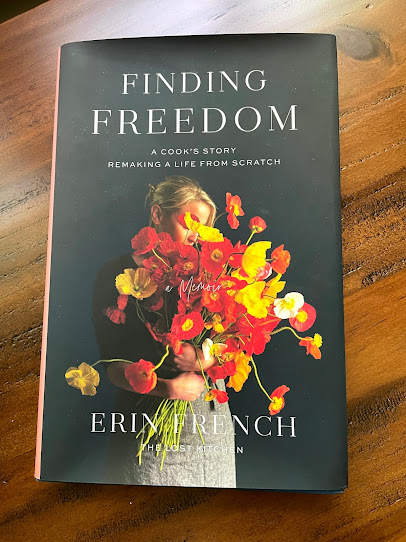There are lines. Individual sentences for the most part. A cluster of three at most, set apart by a single stroke of the return key. And not just for a page or two. The entire novel unfolds this way, one line at a time, through shifting points of view. Many shifting points of view
It’s a risky choice.
Because you can’t hide bad writing with your sentences displayed like that. It’s le mot juste all the time, with every line at haiku-levels of word choice intentionality. Add to that the warnings writers are given to not overwhelm readers with too many characters and their myriad perspectives, and Kuebler has set herself a high bar.
Which she clears with room to spare. Like a master weaver, Kuebler threads her characters’ wants and needs, their backstories and observations, line by line, as if the novel were the warp and weft of a great loom. The resulting narrative is not only an inventive, emotionally engaging page turner, but also a metaphor for the resilience of the community that animates this subtle, surprising book.
It’s a community this Middlebury-based writer clearly knows well. Set in the fictional village of Glenville, Vermont, the story takes place over the course of twelve months, beginning and ending in springtime. A New York family of three — Sarah, Jeff and their teenage son, Will, — has decided to make Glenville their permanent home and built a pricey, off-grid house on the site of the family’s old hunting camp. Their arrival sets off a chain reaction of events. Like a web, trembling throughout when the least strand is touched, the fabric of this small town is forever altered after the Calpers move in.
One afternoon, Will, out for a walk, stumbles into a trio of high school girls and encounters the incandescent Honey, daughter of the local evangelical beekeeper. The web trembles as these two meet: Will, lonely and directionless, counting down the weeks until he leaves for college; Honey, beautiful, home-schooled and hungry for a life beyond the strictures set by her parents. Their chemistry is palpable.
Throughout the unusually early spring and warm summer — “Winters just aren’t so long these days,” observes Jeanne, who runs the corner store/local post office and sees all the comings and goings — Will and Honey embark on a series of secret, woodland trysts. Few know what’s going on between these two and those who do aren’t happy about it, least of all Eli LeBeau. The overlooked, often-mocked outlier of a notorious Glenville family, Eli is obsessed with Honey, and has beaten countless criss-crossing footpaths through the forest in order to watch (some might say stalk) her. Oblivious to Eli’s watchful eye and increasingly resentful, wrath-full heart, Will and Honey pursue their relationship — with inevitable results. Readers won’t be surprised when 16-year old Honey reveals her pregnancy. But when events take a tragic, unexpected turn, the members of this community are compelled to dig deep, to confront hard truths about what happened, and ultimately to ask, “How do we move forward?”
Kuebler’s storytelling genius lies in the way she weaves an underlying menace into the fabric of this lovely place. At any given moment, we sense this cosseted community could arc toward tragedy: when middle-aged Nell who lives alone climbs a ladder to mend her roof; when Steve, married to Leila, has one gin too many and becomes overly familiar with Jenny Rose; when Cyrus, determined to make some quick cash, receives suspicious packages in the mail. Lulled into the rhythms of the seasons and comforts of the familiar, the inhabitants of Glenville tend to lose sight of the potential danger that lurks behind their individual choices. How one’s poor decisions could set everything asunder for many.
It’s an oversight that resonates beyond the confines of this one village. “Easy to forget that the planet is on fire when you’re up here, looking out over the treetops,” Sarah Calper muses from the porch of her bright, pretty house.
But while loss, change and rebirth are inevitable, the question of whether and how we survive — in our relationships, in our communities, in our world — remains. Kuebler leaves us with no easy answers, although it’s no accident that the final gift in this book is a shawl, woven together by Sarah and Honey for the new baby.
Ultimately, the connections and commitments we form to each other and to the place we call home, are what endures.



































